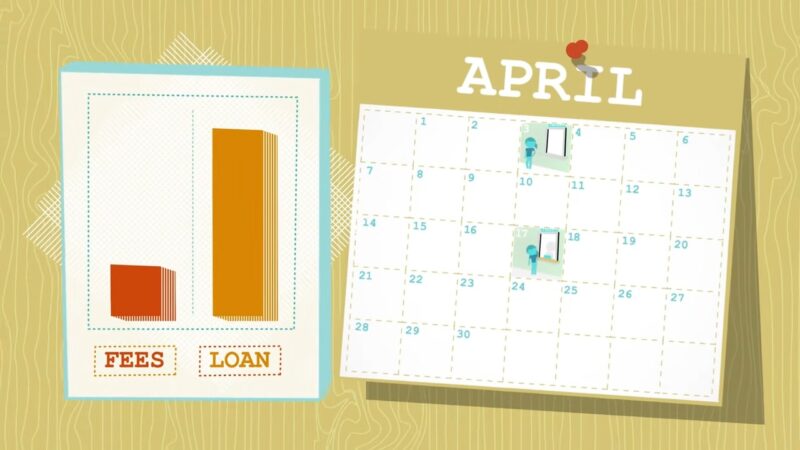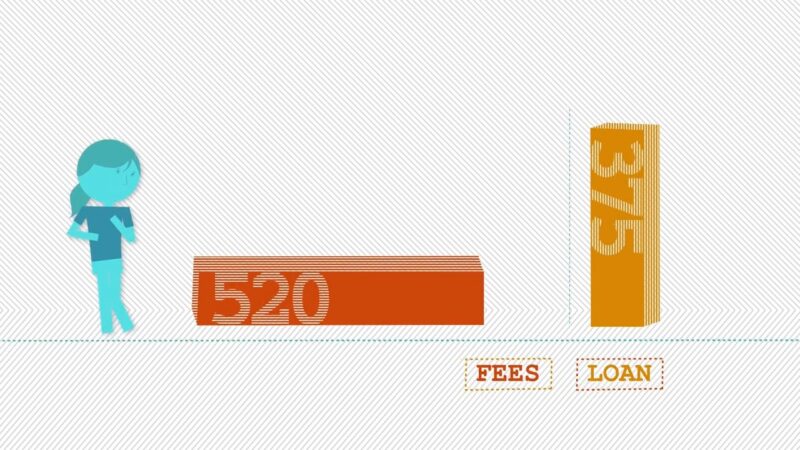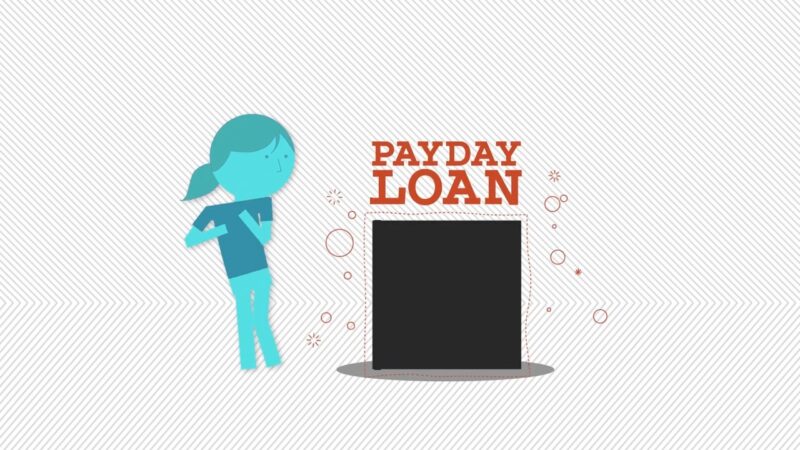When financial hardships strike, it’s easy to feel cornered with no viable options. In these desperate moments, you might consider payday loans as your saving grace. But how many payday loans can you have at once? That’s the question we’ll be delving into today.
Payday Loan in a Nutshell
First off, it’s important to understand what a payday loan is. It is a short-term, high-interest loan designed to tide you over until your next payday. The idea is that you’ll use your future income to repay the loan.
However, payday loans are often criticized for their high interest rates and potential to trap borrowers in a cycle of debt. This is why they are heavily regulated in many states.
How Many Can You Have At Once?
The number of payday loans you can have at once depends largely on your state of residence. Some states strictly limit the number of payday loans a person can have at one time, while others have looser regulations.
For instance, in states like Michigan and Nebraska, you are only allowed to have two at a time. Other states, like Washington and Kentucky, allow you to take out multiple payday loans, but your total loan amount cannot exceed a certain limit.
On the other hand, some states like New York, Arizona, and Georgia have outright banned these loans due to their predatory nature.
Keep in mind these rules are subject to change, so it’s always best to check with your state’s regulatory agency or a trusted financial advisor for the most up-to-date information.
The Dangers of Multiple Payday Loans
While it might seem like a good idea to take out multiple payday loans to cover immediate expenses, there are significant dangers to be aware of. Here’s why:
Sky-High Interest Rates
These loans are notorious for their high Annual Percentage Rates (APR). The average APR for them in the United States is around 400%, but it can go as high as 700% or more. This means that if you take out multiple payday loans, you could find yourself in a situation where the interest alone becomes almost impossible to pay off.
The Debt Cycle
Payday loans are typically due on your next payday. If you can’t repay them in full by then, you may feel forced to renew or ‘roll over’ the loans, incurring even more interest and fees. This can lead to a cycle of debt that’s extremely difficult to break free from.
Impact on Credit Score
While payday lenders generally don’t report to the three major credit bureaus, if you default on your payday loan, the lender might sell your debt to a collections agency, who can report it. This can have a negative impact on your credit score.
Alternatives You Can Try
Given the potential pitfalls of payday loans, it’s worth considering some alternatives:

Personal Loans
Personal loans typically have lower interest rates than payday loans and a longer repayment period. Some lenders offer short-term personal loans designed for individuals facing financial emergencies.
Credit Card Cash Advance
If you have a credit card, consider taking out a cash advance. While the interest rates can be high, they are generally lower than those of payday loans.
Payment Plan With Creditors
If you’re unable to pay your bills, try negotiating a new payment plan with your creditors. Most are willing to work with you if they believe you’re acting in good faith.
Emergency Assistance Programs
Consider looking into emergency assistance programs in your community. These programs can help with utilities, food, and housing costs.
Takeaways for Payday Loan Borrowers

If you’re considering taking out multiple payday loans, here are some key takeaways:
- Understand the terms and conditions: Before taking out any loan, ensure you understand the terms and conditions. This includes the interest rate, fees, and repayment date. If anything is unclear, don’t hesitate to ask the lender for clarification.
- Consider alternatives: As we’ve outlined, there are plenty of alternatives to payday loans that may be less risky and more affordable. It’s always worth exploring these options first.
- Seek professional advice: If you’re struggling with debt, it can be helpful to seek advice from a financial counselor or advisor. These professionals can help you navigate your situation and provide strategies for debt management.
- Know your rights: Every state has different regulations when it comes to payday loans. Knowing your rights can protect you from predatory lending practices.
Understanding Payday Loan Lenders
As you navigate the world of payday loans, it’s essential to understand the lenders behind these financial products.
Lenders are typically private companies that specialize in short-term lending. These lenders have storefront operations and online platforms to make accessing loans more convenient for customers. They use your paycheck as collateral, hence the term “payday loans.”
While some payday lenders operate ethically, others use predatory lending practices to exploit financially vulnerable individuals. They might use misleading advertising, hidden fees, or incomprehensible contracts to trap borrowers in a cycle of debt. Therefore, it’s crucial to research and understand the reputation of the lender before signing any loan agreement.
Legal Implications for Defaulting on Payday Loans
Another crucial aspect to discuss is the legal consequences of defaulting on payday loans. If you’re unable to pay on time, it can lead to serious consequences:
- Collections: The lender may turn your debt over to a collections agency. Collections agencies use persistent tactics to collect the owed amount, such as incessant phone calls, letters, or even legal action.
- Legal Action: If the collections agency can’t recover the debt, they might take you to court. If the court rules in their favor, they may be able to garnish your wages or levy your bank account.
- Criminal Charges: Although rare, some states allow lenders to press criminal charges for defaulting on payday loans.
Remember, it’s essential to understand the terms and conditions of your loan to prevent falling into default.
How to Safely Use Them

Despite their risks, if you find yourself considering a payday loan, here are some tips to use them safely:
- Borrow Only What You Can Afford: Only borrow what you can afford to pay back with your next paycheck. This will help you avoid rolling over the loan and incurring additional fees.
- Read the Fine Print: Make sure you understand all the terms of the loan, including the interest rate, fees, and repayment schedule.
- Prioritize Paying the Loan: Make it a priority to pay off the payday loan as soon as possible to avoid extra interest and fees.
- Use Them Sparingly: Payday loans should only be used in emergencies and not as a regular means of covering your expenses.
Considerations for Future Financial Stability
To avoid the need for payday loans in the future, it’s important to start planning for your financial stability:
- Start Saving: Even a small emergency fund can provide a financial buffer when unexpected costs arise.
- Budget: A well-planned budget can help you manage your expenses and avoid shortfalls.
- Improve Your Credit Score: A good credit score opens up access to more affordable lending options, such as credit cards or personal loans.
- Seek Financial Counseling: If managing finances feels overwhelming, consider seeking help from a financial counselor.
In the end, while payday loans can offer a quick fix, they are not a long-term solution. Financial education and planning are the keys to achieving and maintaining financial stability.
Closing Thoughts
While the question of how many payday loans you can have at once may seem simple, the answer is complex and dependent on various factors, including the state you live in. More importantly, though, is the understanding that payday loans should be a last resort due to their potential to create a dangerous cycle of debt.
Before you consider a payday loan, exhaust all other possible resources. Speak to a financial advisor, consider personal loans, or even ask your employer for an advance on your paycheck.
